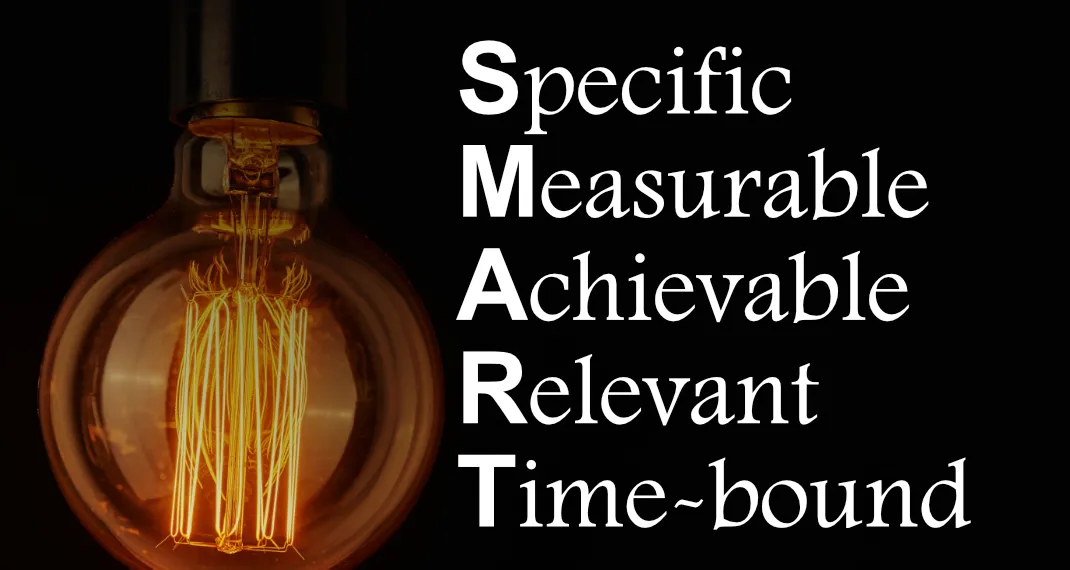Setting SMART Goals: Your Blueprint for Achievable Success
Did you ever experienced having dreams, ambitions and aspirations but never executed tem? Then setting SMART goals is perfect for you!
The leap from a vague wish to tangible achievement can feel daunting. This is where the power of effective goal setting comes in and few frameworks are as effective and widely respected as SMART goals.
SMART goals provide a clear, actionable blueprint for turning your aspirations into reality. It’s a methodology that transforms vague intentions into concrete objectives, dramatically increasing your chances of success. Whether you're aiming for a career promotion, a personal fitness milestone or a new skill, learning to set SMART goals is your essential first step. Let's break down this powerful framework and discover how to make your dreams achievable.
Why Generic Goals Often Fail
Before diving into SMART, it's helpful to understand why non-specific goals often fall short:
Lack of Clarity
Vague goals ("I want to be happier") offer no clear path forward.
No Way to Track Progress
Without measurable metrics, you don't know if you're moving closer or further away.
Feeling Overwhelmed
An undefined large goal can feel impossible, leading to procrastination.
Low Motivation
Without a deadline or a clear reason, it's easy to lose steam.
The SMART Framework: Your Guide to Achievable Success
SMART is an acronym for five key characteristics that every effective goal should possess:
1. Specific (Smart)
Your goal should be clear and well-defined, not vague. Ask:
- What exactly do I want to achieve?
- Who is involved?
- Where will it happen?
- Why is this goal important?
Instead of: "I want to get fit." Try: "I want to run a 5K race."

2. Measurable (sMart)
You need criteria for measuring progress and knowing when the goal is achieved. Ask:
- How much? How many?
- How will I know when it's accomplished?
Instead of: "I want to save money." Try: "I want to save $5,000 for a down payment."

3. Achievable (smArt)
The goal should be realistic and attainable, not something out of reach. While challenging, it should be possible with effort. Ask:
- Is this goal realistic given my resources and constraints?
- Do I have the skills or can I acquire them?
Instead of: "I want to build a million-dollar business in a month." Try: "I want to launch my online course and get 10 paying customers in three months."
4. Relevant (smaRt)
The goal should align with your broader objectives, values and long-term vision. Ask:
- Is this the right time for this goal?
- Does this goal align with my other objectives?
- Is it worthwhile?
Instead of: "I want to learn to juggle." (Unless juggling is part of a larger performance goal) Try: "I want to learn Spanish to improve my communication with clients in my new job role."
5. Time-bound (smarT)
Every goal needs a target date. Without a deadline, there's no urgency. Ask:
- When will this goal be achieved?
- What is the deadline?
Instead of: "I want to write a book." Try: "I want to complete the first draft of my novel by December 31st."

Putting SMART Goals into Practice
- Write It Down: Don't just think it, write it. The act of writing makes it more concrete.
- Break It Down (Further): For larger SMART goals, break them into smaller milestones.
- Track Progress: Regularly review your goal. Are you on track? What adjustments are needed?
- Stay Flexible: Life happens. If circumstances change, don't abandon the goal, adjust it using the SMART framework again.
- Celebrate Success: Acknowledge your achievements, big and small, to maintain motivation.
Final Thoughts: Your Path to Intentional Achievement
Setting SMART goals isn't just a corporate buzzword, it's a fundamental skill for anyone committed to personal development and intentional achievement. By making your goals Specific, Measurable, Achievable, Relevant and Time-bound, you create a powerful roadmap that guides your efforts, clarifies your vision and dramatically increases your likelihood of success. Stop dreaming vaguely and start planning smartly. Your journey to achieving your aspirations begins with a well-defined SMART goal today.




